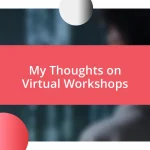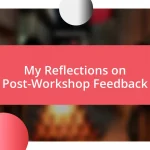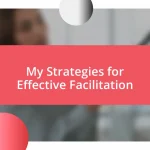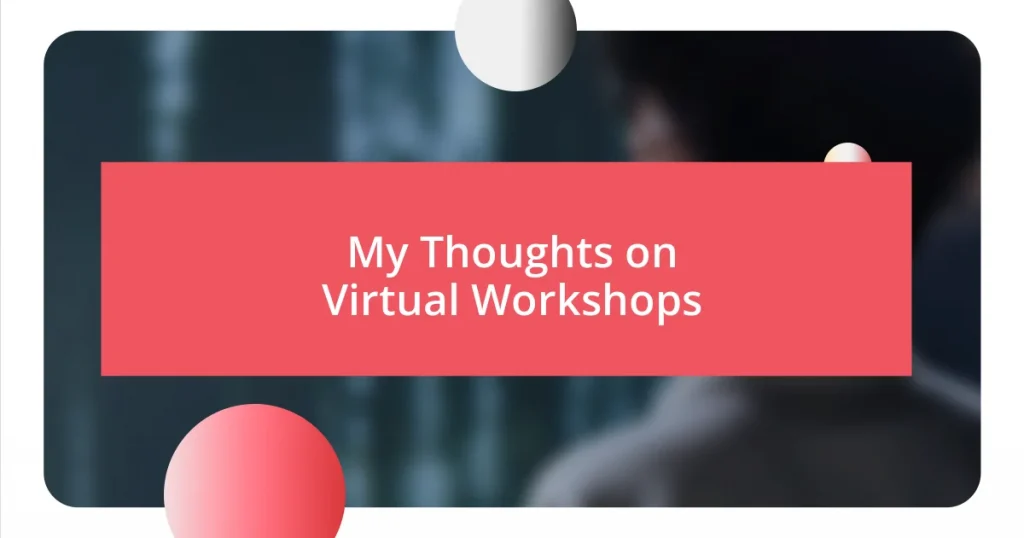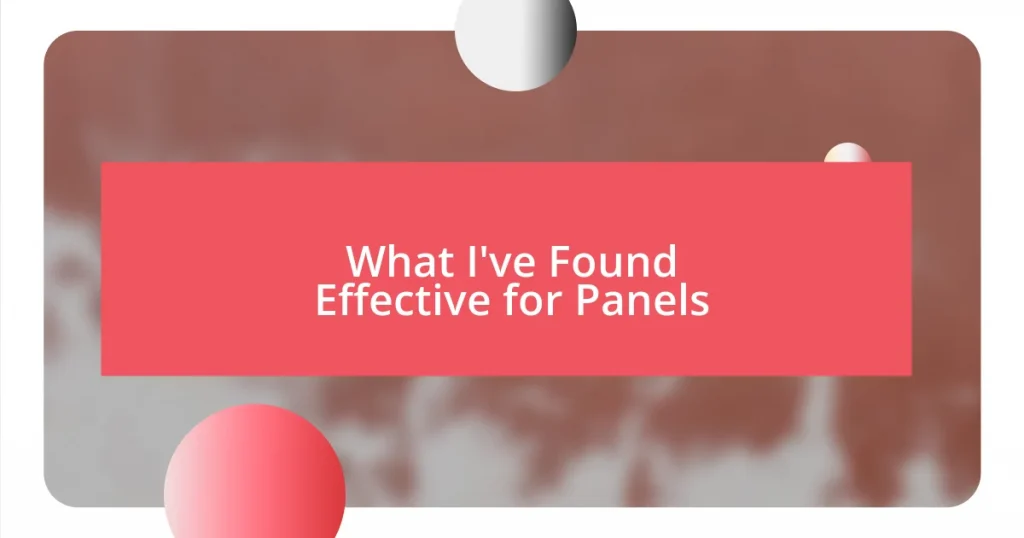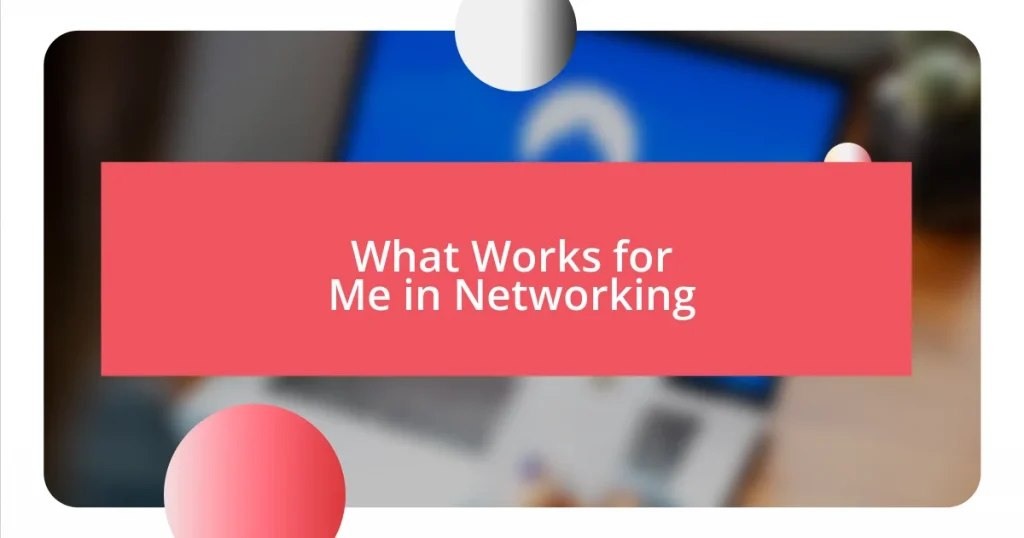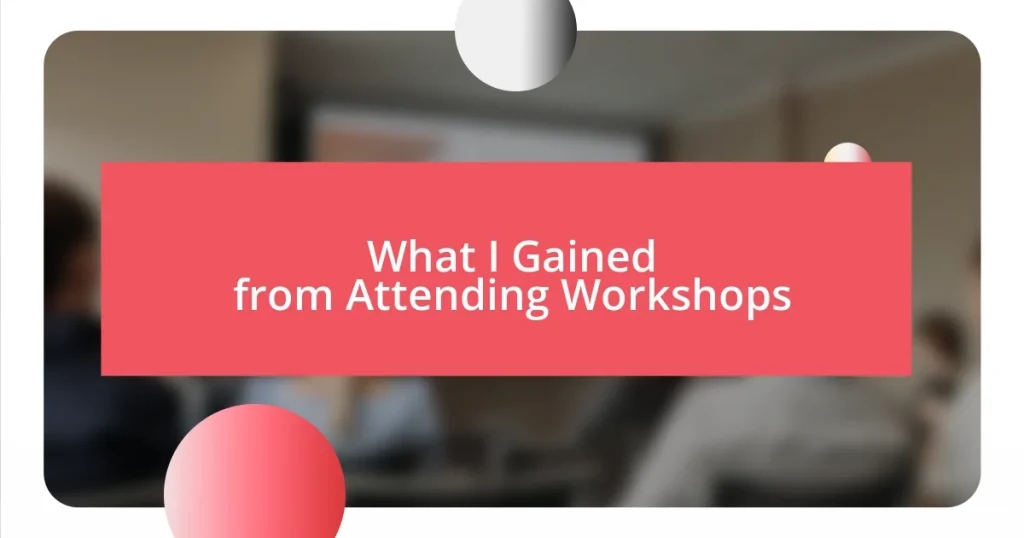Key takeaways:
- Virtual workshops offer convenience, diverse perspectives, and accessible resources, enhancing the overall learning experience.
- Key features of effective workshops include clear objectives, interactivity, and expert facilitation, which foster participant engagement and collaboration.
- Successful follow-up strategies and continuous improvement efforts, such as feedback collection and ongoing communication, reinforce learning and build community among participants.
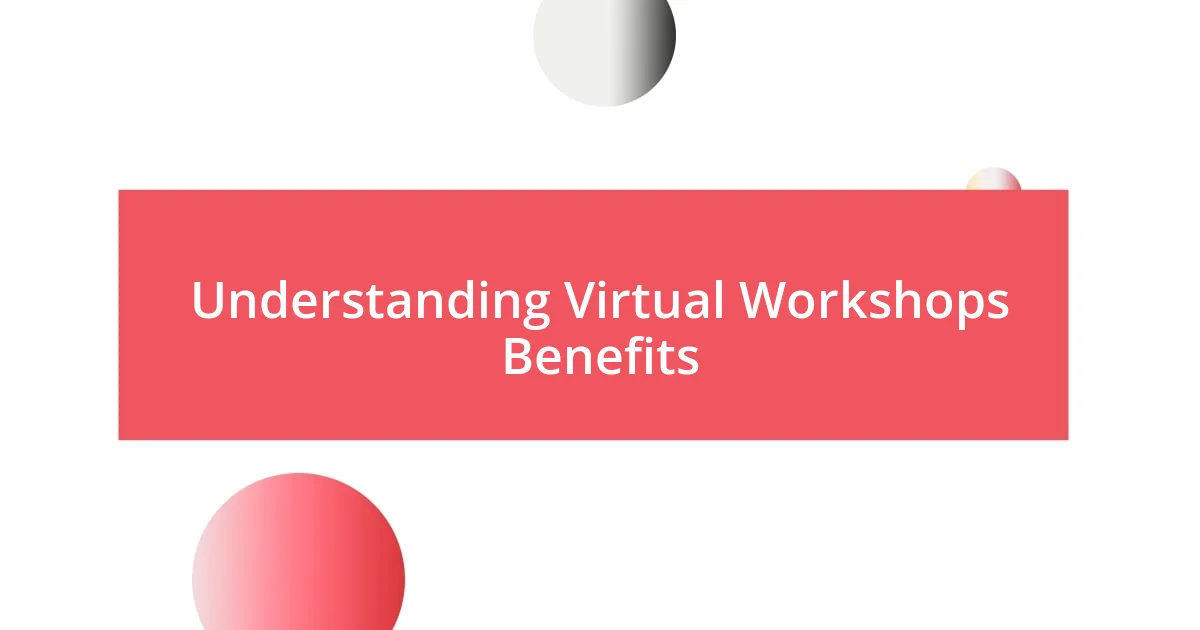
Understanding Virtual Workshops Benefits
One of the most significant benefits I’ve found in virtual workshops is the unparalleled convenience they offer. I remember attending a workshop on digital marketing strategies while sitting in my favorite pajamas, sipping coffee. Can you imagine eliminating the stress of commuting and still gaining valuable insights? It’s a game-changer!
Another aspect that I truly appreciate is the variety of perspectives these workshops can bring together. In one session, participants shared experiences from different corners of the globe, creating an atmosphere charged with energy and creativity. How often do you get to brainstorm with someone from another country without the logistics of travel? It’s inspiring to see how many ideas can spark from such diverse backgrounds.
Moreover, virtual workshops often provide access to resources that you might not find in a traditional setting. I once received a digital toolkit filled with templates and guides that I still use today. Isn’t it refreshing when learning extends beyond just the session and continues to deliver value long after? The ability to revisit recorded sessions also means you can digest the material at your own pace, which is a huge plus in my book!
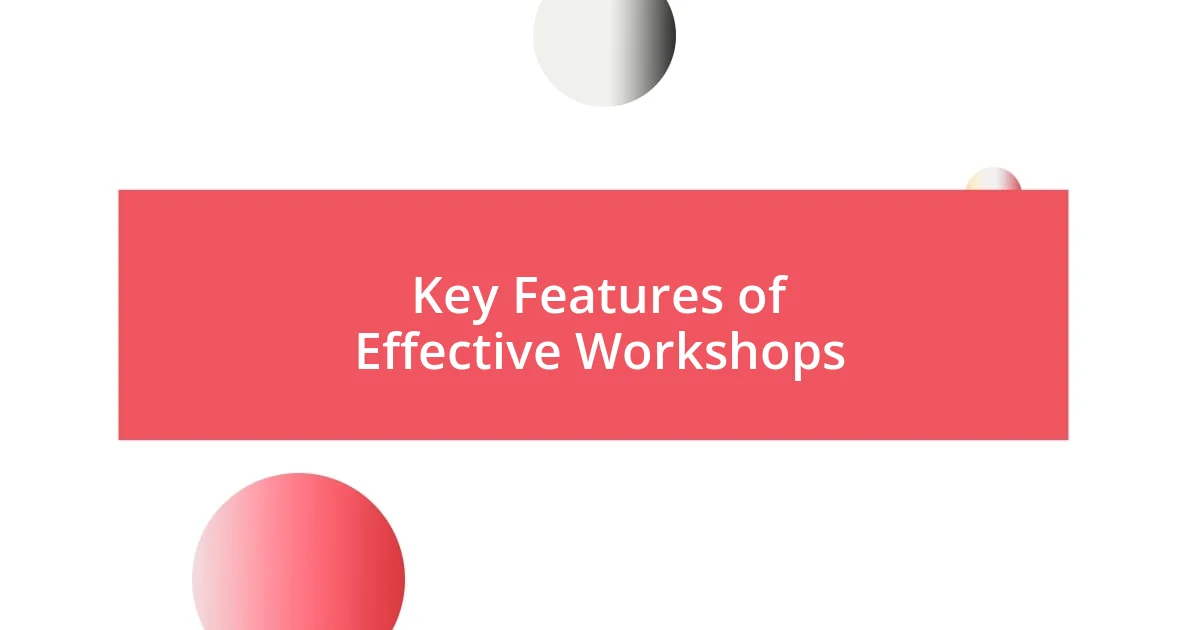
Key Features of Effective Workshops
Effective workshops stand out due to their clear objectives. From my experience, when a workshop has a specific goal, participants can better focus their energies. I recall attending a leadership workshop that defined its aim right from the start: to enhance communication skills. This clarity not only directed our discussions but also allowed everyone to measure their progress throughout the session.
Another key feature is interactivity. I’ve found that the more engaged the participants, the more enriching the experience. I attended a recent workshop that utilized breakout rooms for small group discussions, and those intimate settings really encouraged everyone to contribute. This interactive approach fostered a sense of belonging and collaboration that I believe is crucial for effective learning.
Lastly, expert facilitation is essential for any successful workshop. I once took part in a session led by a facilitator who effortlessly guided discussions and adapted to our needs in real time. It’s impressive how a skilled facilitator can draw out shy individuals while keeping the conversation flowing. When I reflect on those experiences, it’s clear that the facilitator’s ability to connect and engage is what transformed a simple session into an impactful learning journey.
| Feature | Description |
|---|---|
| Clear Objectives | Defined goals help focus participant energy and measure progress. |
| Interactivity | Engagement enhances the learning experience and fosters collaboration. |
| Expert Facilitation | A skilled facilitator connects with participants and guides discussions effectively. |
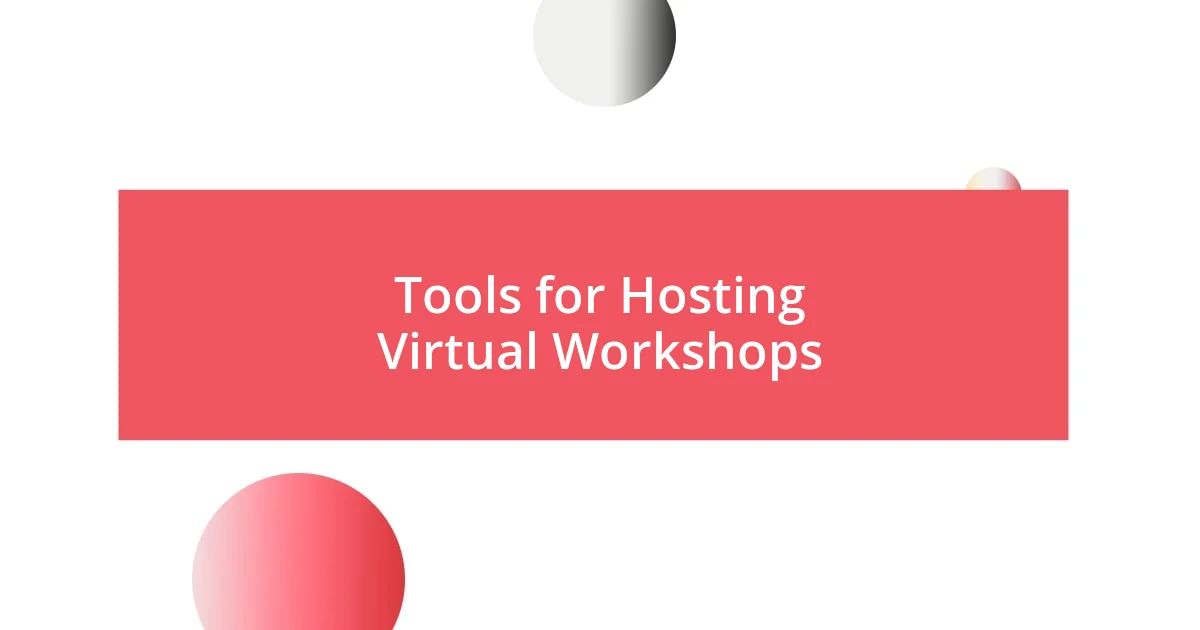
Tools for Hosting Virtual Workshops
When it comes to selecting tools for hosting virtual workshops, I can’t overstate the impact they can have on the overall experience. I remember the first time I used a particular platform; I was amazed by its seamless functionality. The right tool can turn a potentially chaotic event into a smooth, engaging experience where everyone feels connected. It’s like having a well-tuned car to drive on a beautiful day; everything just flows naturally!
Here’s a quick rundown of some essential tools that I’ve found helpful in my own virtual workshops:
- Zoom: Offers user-friendly video conferencing with breakout rooms for small group discussions, which I absolutely love.
- Trello or Miro: These collaborative boards make organizing ideas visual and interactive; I often use them to keep track of workshop ideas in real-time.
- Google Docs: The ultimate collaborative document, allowing participants to contribute notes and ideas during the session. I once facilitated a workshop where we built a resource guide collectively.
- Canva: Great for creating visually appealing presentations and materials that enhance the learning experience.
- Slack: It’s invaluable for fostering ongoing discussions post-workshop, keeping the conversation alive and encouraging participants to stay connected.
Choosing the right tools can truly elevate your workshop experience. I recall a session where we used a polling tool, and the instant feedback caught everyone’s attention—it felt like we were all part of a live game show! The energy in the room, or rather the virtual space, was electric. It’s astonishing how engagement tools can enhance participation and make the session dynamic, transforming passive attendees into active contributors.
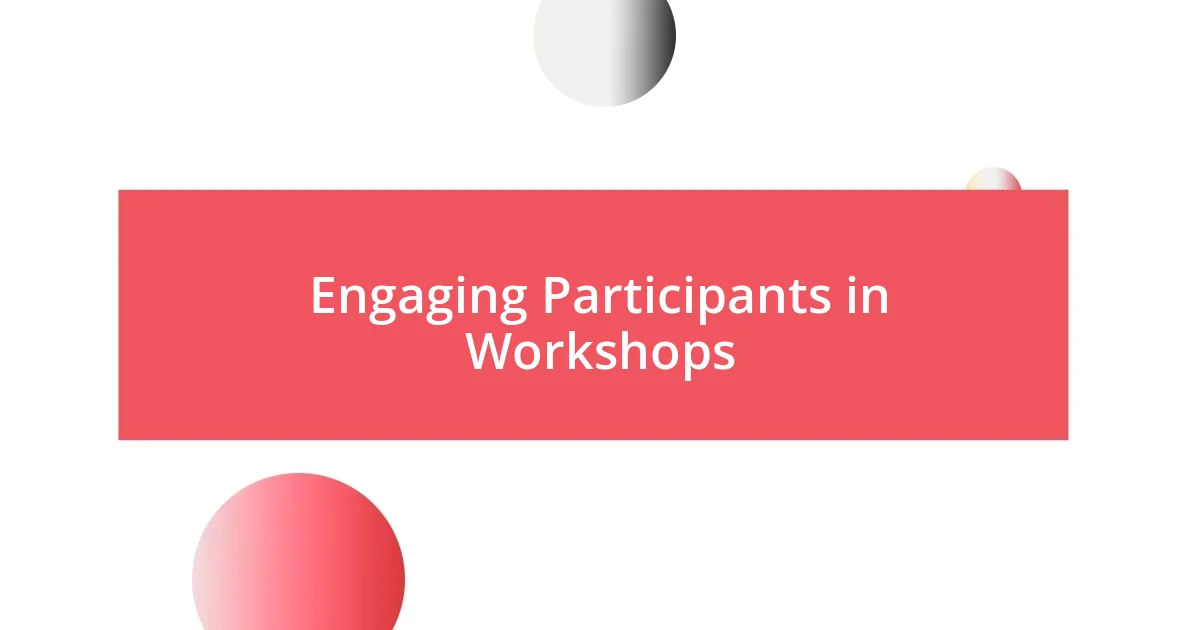
Engaging Participants in Workshops
Engaging participants in workshops is both an art and a science. I’ve seen firsthand how energizing activities, like icebreakers, can dramatically shift the dynamic of a group. For instance, during one workshop, we took a few minutes to share our favorite hobbies. It was surprising how quickly everyone opened up, leading to deeper interactions later on. Isn’t it fascinating how a small gesture can spark genuine connections?
I’ve often found that incorporating interactive elements keeps participants on their toes. In a recent virtual workshop, we used polls throughout the session to gauge opinions on various topics. I remember feeling a rush when I saw how invested everyone was—people were eager to voice their thoughts! This not only encouraged participation but made everyone feel valued. Isn’t it incredible how technology can bridge distances and create shared experiences?
The approach to engagement can also be adjusted based on the participant’s knowledge and experiences. In one thoughtful workshop I attended, we dedicated time for peer-to-peer sharing, where we could exchange success stories and challenges. This wasn’t just insightful, it was empowering. The conversational flow that emerged fostered an environment of trust and openness, reminding us that we are all learning together. Have you ever considered how powerful it is to learn from one another’s journeys?
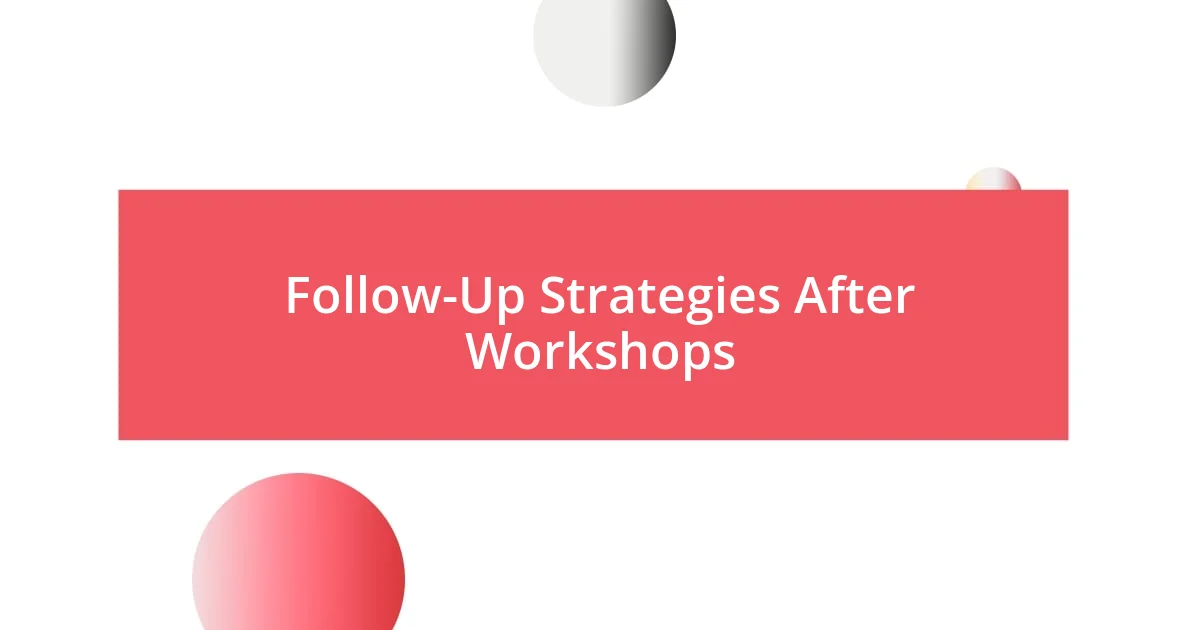
Follow-Up Strategies After Workshops
After a workshop wraps up, I believe following up with participants is crucial for reinforcing the concepts discussed. I remember after one session, I sent out a personalized email thanking attendees for their participation and included a summary of key points along with additional resources. It felt gratifying to see them engage with the materials—some even shared their takeaways, which sparked further discussions. Isn’t it rewarding to witness how a small act of acknowledgment can deepen connections?
In my experience, utilizing online platforms for ongoing communication can really enhance post-workshop collaboration. For instance, I created a dedicated Slack channel after a recent workshop, where participants continued to share relevant articles and ideas. I noticed a vibrant exchange of insights that extended well beyond our initial session. Have you ever considered how sustained engagement can transform a one-time event into a thriving community?
Feedback collection is another cornerstone of my follow-up strategy. After one workshop, I used a quick survey to gather insights about participants’ experiences and suggestions for improvement. The responses were not just numbers—they included heartfelt comments that propelled me to refine my future offerings. Engaging with feedback has taught me that every individual’s perspective adds value. How often do you reach out for feedback after an event?
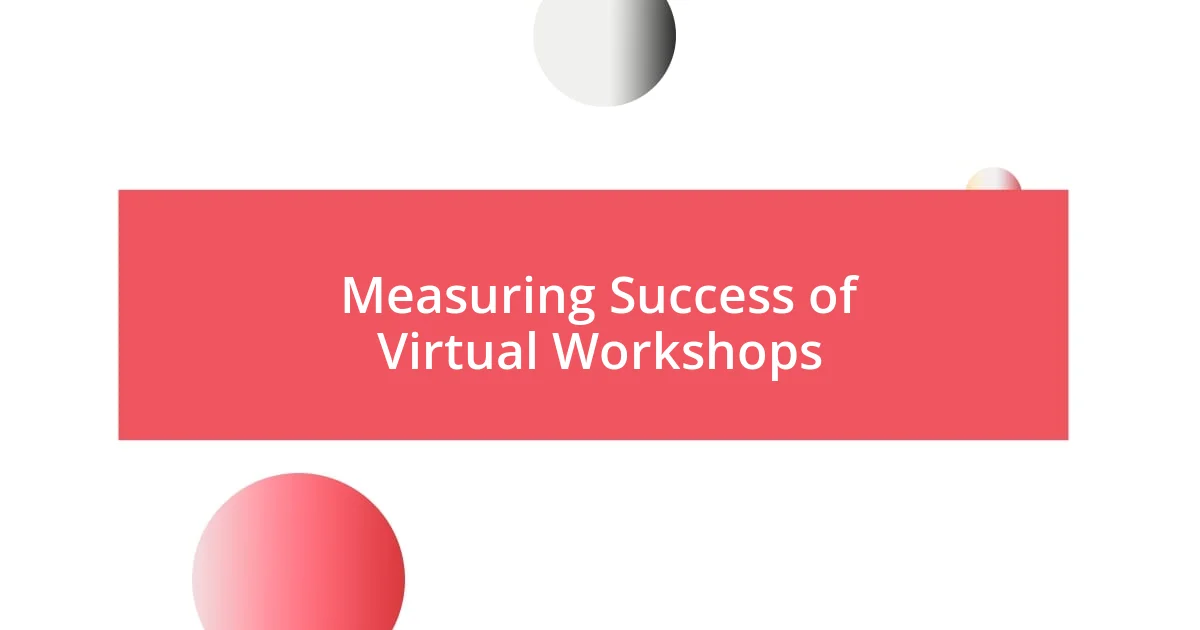
Measuring Success of Virtual Workshops
Measuring the success of virtual workshops is something I’ve pondered deeply after each session I’ve hosted. I often look at participation metrics, such as attendance rates and engagement during activities. I recall a workshop where we had a turnout of 85% and the chat was buzzing with questions. It made me feel accomplished, knowing that people were not only present but actively involved. Isn’t it interesting how numbers can tell a story of engagement and interest?
Another significant aspect I focus on is the qualitative feedback. After a particularly enriching workshop on digital marketing, I requested participants to share their biggest takeaway. The responses were incredibly fulfilling; one attendee wrote how they felt empowered to implement what they had learned, and that made all the planning worth it. I find that hearing about the impact my workshop had on someone’s approach makes the success tangible. Have you ever felt that rush of validation when someone expresses how your efforts made a difference?
Lastly, I place a strong emphasis on follow-up actions that participants take post-session. During one workshop, I encouraged participants to set personal goals for implementation. A few weeks later, I checked in to see how they were progressing, and I was thrilled when several people reported back with success stories. It was a testament to the impact of our time together. How do you measure the success of your learning experiences once the event is over?
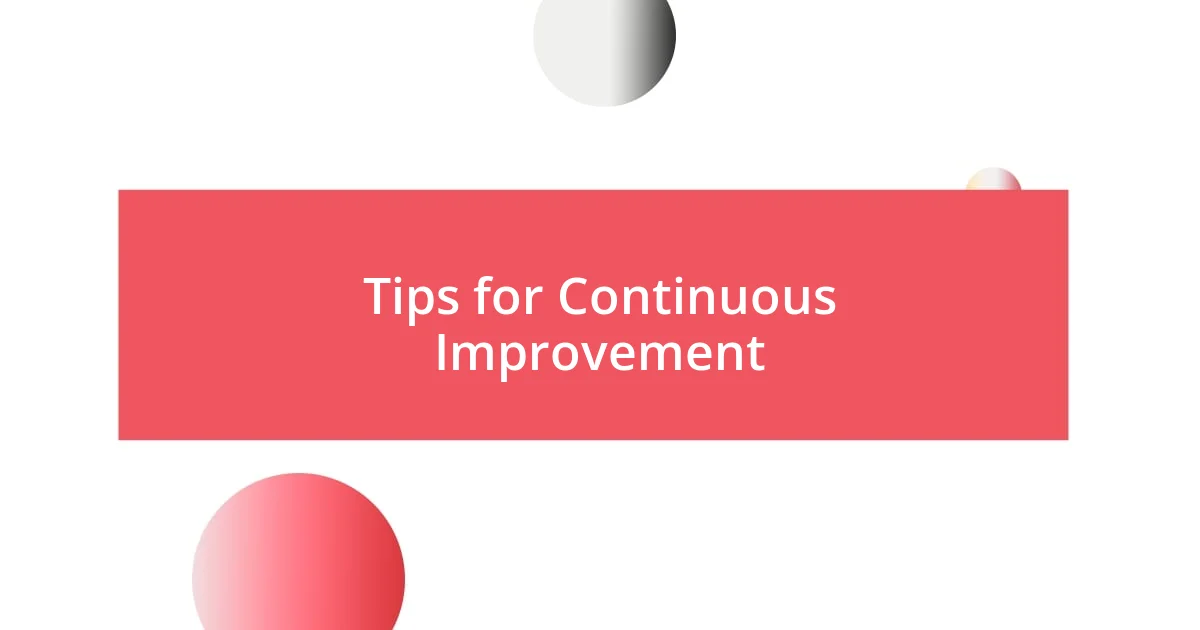
Tips for Continuous Improvement
Creating an environment for continuous improvement in virtual workshops is something I find essential. One of my favorite methods is to encourage participants to share what they’ve learned not just in formal settings but in casual conversations as well. For example, during a follow-up meeting, I once asked attendees to share how they applied new skills in their day-to-day work. It was amazing to hear how one participant streamlined their workflow based on what they learned, and that sparked inspiring stories around the virtual room. Doesn’t it feel fantastic when your workshop moments lead to real-life applications?
I’ve also discovered the value of iteration through trial and error. After hosting a series of workshops, I started to notice trends in my content delivery—it became clear that some topics resonated more than others. One session on emotional intelligence garnered such a rich discussion that I knew I had stumbled upon something worthwhile. From that point on, I prioritized developing that theme further, turning what was once just a topic into a multi-part series. Isn’t it enlightening how paying attention to dynamics can guide our future efforts?
Lastly, I’ve begun using collaborative tools to assess ongoing developments in participants’ skills. Recently, I introduced an interactive Google document where everyone could post updates on their progress after a workshop. It felt exhilarating to see a collective commitment to growth unfold right before my eyes. When participants witnessed each other’s achievements, it fostered a supportive atmosphere that really sparked motivation. Have you thought about how collective accountability can elevate your workshops?





